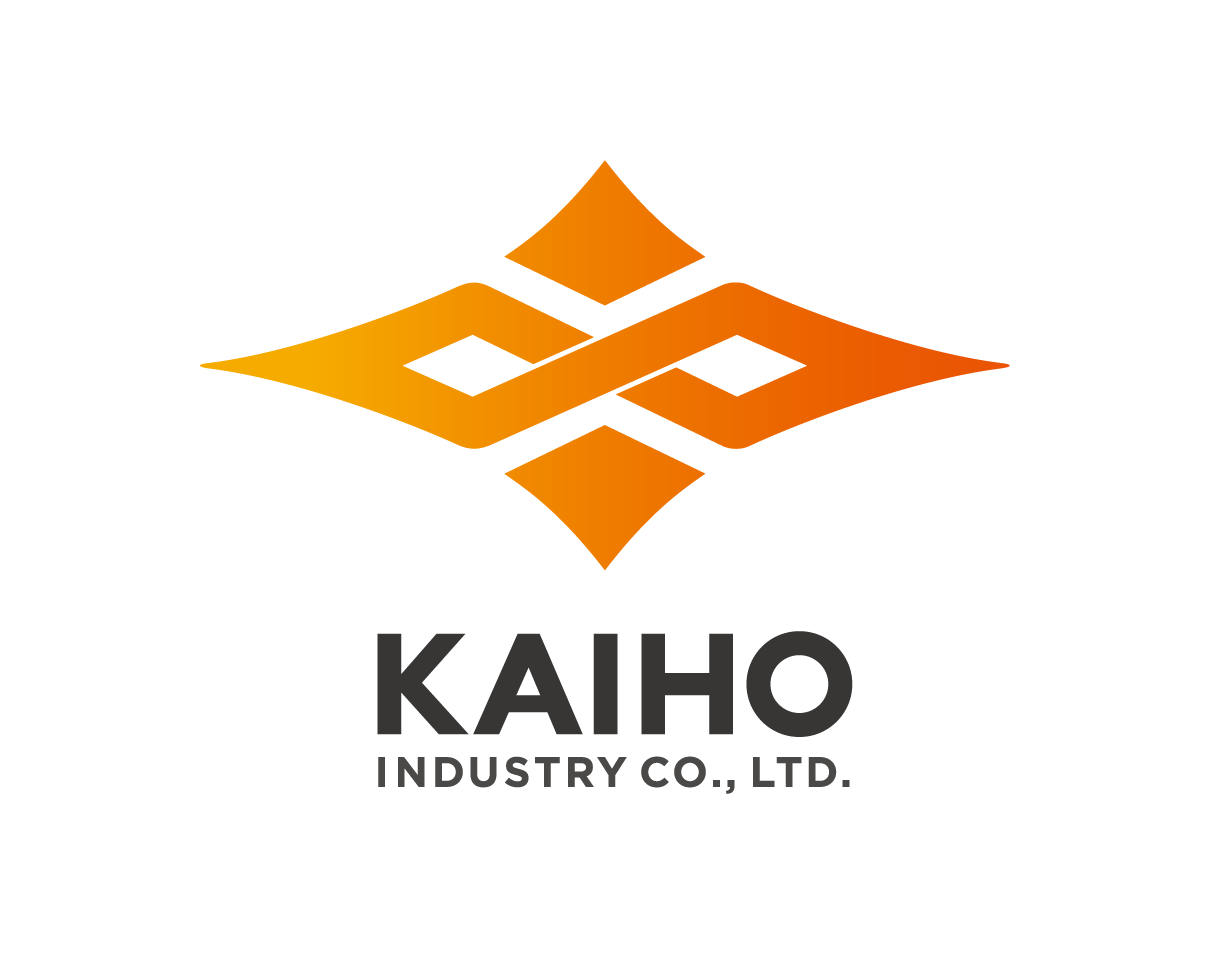-
応募プロジェクト・アイデアのタイトル
環境配慮型自動車リサイクルシステム
-
応募プロジェクト・アイデアのタイトル(英語)
Eco-Friendly and Profitable Auto Recycling System
-
応募プロジェクト・アイデア紹介動画URL(5分以内)
https://youtu.be/oSEj1Hjp2qU
-
応募プロジェクト・アイデアの説明
世界には13億台以上の自動車が存在し、そのうち約3割が日本車と言われる。日本では年間330万台の使用済み自動車が発生する同時に、年間100万台以上の中古車が発展途上国などへ輸出されているが、多くの国々ではリサイクルのインフラがなく、環境汚染を引き起こしている。
当社は、52年間培ってきたノウハウで使用済み自動車を精緻に解体・分別することで素材の再資源化を促進し、リユース可能な部品を安心して購入いただけるように国際的な品質規格を開発する事で、世界約90カ国へ販売するネットワークを構築している。
さらに、競争から協調の精神で、日本全国の同業者約70社とアライアンスを組むことで業界全体の収益性と付加価値向上に貢献し、国際リサイクル教育センターの設立によって世界から累計約200名の研修生を受け入れ、ものの作りっぱなし、 売りっぱなしという消費一辺倒のあり方から、循環経済を実現させるための「あとしまつ」を私たちが担います。 -
応募プロジェクト・アイデアの説明(英語)
There are more than 1.3 billion cars in the world, of which about 30% are Japanese cars. In Japan, 3.3 million end-of-life vehicles are generated every year, while more than 1 million used vehicles are exported to developing countries every year, many of which lack recycling infrastructure and cause environmental pollution.
With 52 years of experience in dismantling and sorting end-of-life vehicles, we have developed an international quality standard (British Standard Institution, PAS777) to ensure that reusable parts can be purchased with confidence.
Furthermore, in the spirit of cooperation rather than competition, we have formed alliances with about 70 companies in the vehicle recycling industry throughout Japan to contribute to improving the profitability and added value of the entire industry. Furthermore, through the establishment of the International Recycling Education Centre (IREC), we have provided vehicle recycling training to about 200 trainees from around the world. We are responsible for the implementation of the circular economy through vehicle recycling. -
応募プロジェクト・アイデアの詳細説明
資源循環社会の実現に向けて、ものの後始末を行う"静脈産業"の存在は不可欠であるにも関わらず、これまで"静脈産業"の社会的認知度は低いという現実がありました。かつては「解体屋」と呼ばれていた自動車リサイクル事業ですが、当社は「自動車リサイクル事業を社会に不可欠な誇れる存在にしたい」という想いを胸に、高度成長の裏側で公害問題にあえぐ日本社会のありようを見つめ、創業から52年間に渡って事業を成長させてきました。
世界は今、急激な人口拡大と経済発展に伴い、自動車保有台数は全世界で約13億台に上っています。一方で、使われなくなった自動車の処理に必要なインフラ・技術・規制については、ほとんどの国が未整備、かつ十分な知識を持ち合わせていません。使用済み自動車の処理は適切な設備と技術がなければ、非常に危険で汚い作業を伴います。廃油・鉛による土壌汚染、廃プラスチック・ガラス・タイヤの投棄・野焼きによる環境汚染は大きな社会課題となっており、近隣住民の健康を脅かしているのが現状です。
このような社会背景の中で、「地球規模における資源循環型社会の一翼を担う」という当社の企業理念を体現すべく、50年以上に及ぶ事業期間を通じて考案した自動車解体から部品流通に至る資源循環エコシステムを、アジアやアフリカ、中南米など世界各国へと“輸出”し、これから発展しようとする国々の環境問題の解決、資源循環社会構築に寄与しようとしています。
2007年には日本で初めて体系的に自動車リサイクル技術を学ぶことができる研修センター、International Recycling Education Center(IREC)を設立し、これまでに約200人の研修生に技術研修を提供してきました。この経験から培った技術移転ノウハウを元に、各国へリサイクル技術を届けます。さらに、当社が独自開発した自動車リサイクル事業に特化した業務基幹クラウドシステム(KRAシステム:Kaiho Recyclers Alliance System)によって、使用済自動車の仕入・生産・在庫管理・販売情報を一元管理し、ビジネス進行に不可欠な主要業務処理をサポートします。このシステムでは、車の個別識別番号にあたる「車台番号」をスマートフォンのカメラで撮影することでAIが文字を読み取り、車台番号に紐づく車両情報(車名、車両型式、年式等)を自動取得することで業務効率を向上させます。このシステムで中古部品のトレーサビリティを実現することで、補修部品を必要とするお客様の部品の適合性確認に活用し、リユースマーケットの活性化を促進します。
さらにこのシステムは「競争から協調へ」という精神の下で情報を公開し、すでに日本国内の同業約70社にシステムが共有されています。従来の中古部品市場はクローズドな不透明な市場でしたが、KRAシステムによって蓄積された過去の取引実績から国や地域ごと、あるいは車種ごとの需要動向を把握することができ、国内外のオープンな「適正相場」の形成にも貢献しています。
「自動車リサイクルによる資源循環」に加えて、温室効果ガス排出量の削減という観点で、私たちは大学と共同で自動車リサイクルビジネスの社会・環境への貢献について多面的に評価し、その指標化にも取り組んでいます。私たち自動車リサイクル事業者は、一台の車から鉄や銅・アルミといった金属を選別することでそれらをリサイクルし、限りある地球資源の有効活用と、温室効果ガス(GHG)の削減へ貢献しています。単純に言えば、使用済み自動車から素材をしっかりと分別しリサイクル材を製造することで、新しく地球の資源(鉄で言えば鉄鉱石)を掘り出して新品を製造する過程で発生するプロセスをなくすことができます。つまり、「リサイクルプロセスで発生するGHG排出量」 よりも 「新品製造で発生するGHG排出量」が小さければ、私たちが事業活動すればするほど環境への負荷を低減することができます。
大学との共同研究の中で、私たちが年間で処理している使用済み自動車の台数や選別した各素材の重量のデータをKRAシステムから抽出し、私たちが事業活動を通して環境へ貢献していることを、GHGの排出削減量を用いて指標化することができます。
また、私たちは使用済み自動車からリユース可能な部品を輸出しています。これは、リサイクルと同様に、リユースをすることによって新品製造によって発生するGHG排出量を代替することに繋がります。私たちは中古部品の多くをロシアや中東へ輸出していますが、それらが海外でリユースされると言うことは、現地の方達の生活の利便性を高められるだけではなく、部品が壊れてしまって乗れなくなった車の命を長らえさせることで、新車の製造に替わる環境負荷を減らすことにつながっています。
ただし、リユースすれば良い、海外へ輸出すれば良い、と言うことではなく、海外でリユースされた部品もいつか使用済みになってしまいます。なので、私たちは海外へ自動車リサイクルの技術と経営管理ノウハウを伝え、世界の「あとしまつ」へ貢献することへも取り組みます。2021年からは、こうした指標化の取り組みをさらに深めて、脱炭素社会へむけたロードマップの策定にも取り組んでいます。SBTi(Science Based Targets Initiative:科学と整合した目標設定イニシアティブ)やTCFD(Task Force on Climate-related Financial Disclosures:気候関連財務情報開示タスクフォース(TCFD))といったグローバルな脱炭素化への取り組みの流れの中で、GHGの排出削減目標にコミットすることが求められており、排出削減目標の設定を行い、SBTiへの認証も受けています。
これらの様々な取り組みを通じて、資源循環社会構築と気候変動対策に向けて取り組むと同時に、私たちの大切なお客様に向けても「あとしまつ」の大切さを知って頂く取り組みを進めています。毎年8月にはお客様や地域の皆さまに私たちの取り組みを知っていただきたい、 特に子供たちに「もったいない」と「あとしまつ」について楽しく学んでいただきたいという想いで、2011年からリサイくるまつりを開催してきました。目の前でクルマが解体されていく迫力ある解体ショーや、実際に自動車の部品の取り外しができるお仕事体験、縁日でタイヤボウリングや部品釣りゲームなどを楽しんだりと、当社ならではのクルマのリサイクルにまつわるイベントが盛りだくさんなのがこのお祭りです。 今年はコロナ禍において、新たな挑戦としてリサイクル工作コンテストを開催しました。 当社の自動車解体から発生する使わなくなった自動車部品を再利用してものづくりを行なって頂くコンテストです。コンテストを通じてアップサイクルを体験することで子供たちにごみの削減やリサイクルの必要性について知っていただく機会を提供しています。使わなくなったものでも捨てずに新しく生まれ変わらせることができるということを伝えながら、コンテスト形式でゲーム要素も取り入れつつ、オリジナリティあふれる子供たちの発想に私たち自身も楽しんで取り組んでいます。 -
応募プロジェクト・アイデアの詳細説明(英語)
In order to realize a circular economy, the existence of the "venous industry" that cleans up after products is indispensable, but until now the social recognition of the "venous industry" has been lower than that of the "arterial industry" that manufactures products. The automotive recycling business used to be called "Kaitai-ya (= dismantlers)" by seeing their job as dirty and call it as 3K (3K is the Japanese words referring to hazards of the conventional workplace: "Kiken" meaning dangerous, "Kitanai'' meaning dirty, "Kitsui" meaning stressful).
However, in the 52 years since its foundation, our company has grown with the desire to "make the automotive recycling business an indispensable and proud part of society" and with an eye on the state of Japanese society, which is struggling with pollution problems on the back of its rapid growth.
Today, the world's population is growing at a rapid rate and the number of cars owned by people worldwide has risen to around 1.3 billion. At the same time, the infrastructure, technology and regulations required to dispose of end-of-life vehicles are inadequate and poorly understood in most countries. The disposal of end-of-life vehicles can be a very dangerous and dirty process without the right equipment and technology. Soil pollution caused by waste oil and lead, and environmental pollution caused by dumping and burning of waste plastic, glass and tyres are major social problems and threaten the health of nearby residents. Against this backdrop, in order to embody our corporate philosophy of "playing a part in a circular economy society on a global scale", we have developed an ecosystem for recycling resources, from vehicle dismantling to parts distribution, over more than 50 years of business.
In 2007, we established the International Recycling Education Center (IREC), the first training centre in Japan to offer systematic training in automotive recycling technology, and have so far provided technical training to around 200 trainees. Based on the technology transfer know-how we have developed through this experience, we deliver recycling technology to other countries. In addition, the KRA system (Kaiho Recyclers Alliance System), a cloud-based ERP(Enterprise Resource Planning) system developed by us specifically for the automotive recycling business, allows us to centrally manage information on the purchase, production, inventory management and sales of end-of-life vehicles, and to support key business processes essential to the progress of the business. The system improves operational efficiency by automatically retrieving vehicle information (vehicle name, model, year, etc.) associated with the VIN number, which can be read by AI by photographing the VIN number with a smartphone camera. By providing traceability of used parts, this system can be used to check the suitability of parts for customers who require repair parts, thereby stimulating the reuse market.
Moreover, the system is open to the public in the spirit of "from competition to cooperation" and is already shared by about 70 companies in the same industry in Japan. In the past, the used parts market was a closed and opaque market, but the KRA system has made it possible to identify trends in demand by country, region and vehicle type based on past transactions, thus contributing to the formation of an open and fair market both in Japan and overseas.
In addition to the recycling of resources through vehicle recycling, we are also working with universities to evaluate and benchmark the contribution of the vehicle recycling business to society and the environment in terms of reducing greenhouse gas emissions. By separating metals such as steel, copper and aluminium from a single vehicle, car recyclers contribute to the effective use of the earth's limited resources and to the reduction of greenhouse gases (GHG). Simply put, by separating materials from end-of-life vehicles and producing recycled materials, we eliminate the process of digging up the earth's resources (in the case of iron, iron ore for instance) to produce new ones. In other words, if the amount of GHG emissions generated in the manufacture of new products is lower than the amount of GHG emissions generated in the recycling process, then the more we do business, the less GHG emission impact we have on the environment.
In our work with universities, we extract data from the KRA system on the number of end-of-life vehicles we process each year and the weight of each material we sort, so that we can use the reduction in GHG emissions as an indicator of the contribution we are making to the environment through our business activities.
We also export reusable parts from our end-of-life vehicles. This means that, as well as recycling, reuse replaces the GHG emissions generated by the manufacture of new products. We export many of our used parts to Russia and the Middle East etc, where they can be reused overseas, not only to make life easier for local people, but also to prolong the life of vehicles whose parts have broken down, thereby reducing the environmental impact of replacing them with new ones.
However, this does not mean that we can just reuse or export the parts abroad, as the parts that are reused abroad will one day end up being used. This is why we are also working to pass on our automotive recycling technology and business management know-how to other countries, to contribute to use up the end of life vehicles towards circular economy.
From 2021, we are also working to deepen these indexation efforts and develop a roadmap for a zero-carbon society, in line with the Science Based Targets Initiative (SBTi) and the Task Force on Climate-related Financial Disclosures (TCFD). The SBTi (Science Based Targets Initiative) and TCFD (Task Force on Climate-related Financial Disclosures) are part of a global decarbonisation effort that requires a commitment to GHG emission reduction targets. We have also received certification to SBTi.
Through these various initiatives, we are working towards building a circular economy and combating climate change, while at the same time promoting awareness of the importance of 'vehicle recycling' to our valued customers. Since 2011, we have organised the Recycle Festival every August to show our customers and the local community what we are doing, and especially to encourage children to learn about “Mottainai” and the importance of 'vehicle recycling'.The festival includes a powerful dismantling show where cars are dismantled in front of your eyes with a heavy machine, a work experience where you can actually remove car parts, a fair where you can enjoy tyre bowling and used parts fishing games, and many other events related to car recycling that only our company can offer. This year, we took on a new challenge under the Corona disaster: a recycling craft competition at home. This is a contest in which participants are asked to make something by reusing used car parts from our car dismantling process. The contest provides an opportunity for children to experience upcycling and to learn about the need to reduce, recycle and upcycle waste. -
応募プロジェクト・アイデアのWebサイトがありましたら、URLをご記入ください。
https://kaihosangyo.jp/english
- 355
Eco-Friendly and Profitable Auto Recycling System
There are more than 1.3 billion cars in the world, of which about 30% are Japanese cars. In Japan, 3.3 million end-of-life vehicles are generated every year, while more than 1 million used vehicles are exported to developing countries every year, many of which lack recycling infrastructure and cause environmental pollution.
With 52 years of experience in dismantling and sorting end-of-life vehicles, we have developed an international quality standard (British Standard Institution, PAS777) to ensure that reusable parts can be purchased with confidence.
Furthermore, in the spirit of cooperation rather than competition, we have formed alliances with about 70 companies in the vehicle recycling industry throughout Japan to contribute to improving the profitability and added value of the entire industry. Furthermore, through the establishment of the International Recycling Education Centre (IREC), we have provided vehicle recycling training to about 200 trainees from around the world. We are responsible for the implementation of the circular economy through vehicle recycling.
With 52 years of experience in dismantling and sorting end-of-life vehicles, we have developed an international quality standard (British Standard Institution, PAS777) to ensure that reusable parts can be purchased with confidence.
Furthermore, in the spirit of cooperation rather than competition, we have formed alliances with about 70 companies in the vehicle recycling industry throughout Japan to contribute to improving the profitability and added value of the entire industry. Furthermore, through the establishment of the International Recycling Education Centre (IREC), we have provided vehicle recycling training to about 200 trainees from around the world. We are responsible for the implementation of the circular economy through vehicle recycling.


